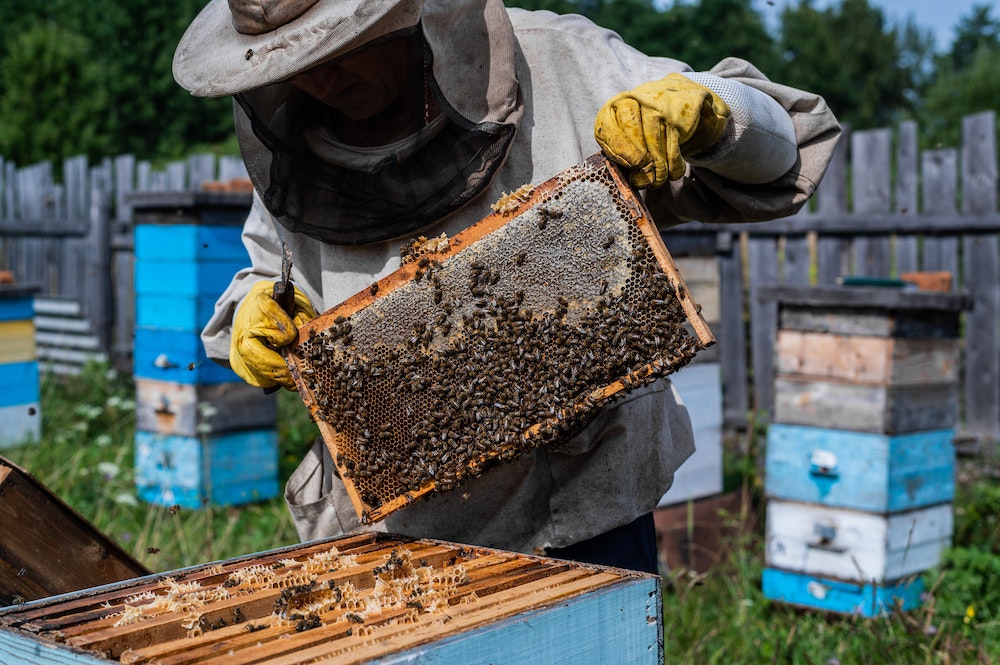What Are the Best Practices for Urban Beekeeping in UK Real Estate Projects?

Urban beekeeping has become a significant trend in many cities around the world, including the bustling metropolis of London. The surge in interest in urban beekeeping indicates a growing awareness of the importance of biodiversity and the key role that bees play as pollinators. Today, you can find hives nestled on rooftops, in community gardens, and as part of innovative real estate projects. Yet, the practice of urban beekeeping also presents unique challenges. Let’s dive into the best practices for urban beekeeping in the UK, especially within the context of real estate projects.
Urban Beekeeping: An Overview
Urban beekeeping represents a movement towards creating sustainable cities. It involves the keeping of bees in urban areas, an initiative aimed at increasing the number of pollinators within city environments. Implementing beehives in areas such as rooftops, balconies, and backyards, urban beekeepers proactively contribute to the biodiversity of the city while also producing honey.
This might interest you : How to Navigate the Conversion of Commercial Spaces to Residential in UK City Centers?
Choosing the right location for the hive is critical. The hive should be situated such that it does not pose a nuisance to people or pets. It should be kept out of direct sunlight and in a location with good airflow. Moreover, availability of water and flowering plants within a 3-mile radius from the hive is essential, as bees forage within this distance.
The Role of Beekeeping in Real Estate Projects
In recent years, more and more real estate projects in UK cities are integrating beekeeping into their designs. Developers are increasingly recognising the value of including green spaces and promoting biodiversity in their projects. These projects not only provide a habitat for bees but also offer residents the opportunity to engage with nature and learn about the importance of pollinators.
Also to discover : What Are the Best Strategies for Building Resilient Communities in UK Flood Zones?
In the heart of London, for example, there are several real estate projects that have adopted this approach. These developments have creatively integrated beehives into their designs, setting up hives on rooftops and in communal gardens. The honey produced is often shared among residents or sold, with proceeds often going toward conservation projects.
Urban Beekeeping in London: A Case Study
London, with its vast green spaces and parks, has become a hotspot for urban beekeeping. The city has embraced the concept, from amateur beekeepers in their backyards to large scale projects within the city’s real estate sector.
One notable project is the "Honey Club" at King’s Cross. The Honey Club is a community project that uses beekeeping to connect people and businesses in the King’s Cross area. The project has placed hives on rooftops in and around the King’s Cross estate. It aims to educate people about bees and biodiversity, and the honey produced is sold to fund the project.
Best Practices for Urban Beekeeping in the UK
For those interested in contributing to urban biodiversity through beekeeping, there are several best practices to adhere to. Firstly, regardless of the project’s scale, potential urban beekeepers must ensure they’re educated about bee behaviour, hive management, and potential challenges. There are many courses and resources available to equip would-be beekeepers with the necessary knowledge.
Secondly, good neighbourly relations are vital. Some people may have legitimate concerns or fears about bees. It’s essential to inform your neighbours about your plans to keep bees and assuage their fears.
Thirdly, regular hive inspections are crucial to ensure that the bees are healthy and the hive is thriving. Hive management includes checking for diseases, managing the bee population, and ensuring adequate food supplies.
Lastly, joining local beekeeping associations can provide invaluable support and advice. These associations are a great source of knowledge and can provide practical assistance if difficulties arise.
The Future of Urban Beekeeping in the UK
Given the pressing need to sustain pollinator populations, it’s encouraging to see an uptick in urban beekeeping initiatives. With careful planning and adherence to proper practices, urban beekeeping presents a unique opportunity to boost biodiversity in UK cities.
Real estate developers and communities need to continue collaborating to integrate bee-friendly strategies into urban planning. This includes incorporating green spaces into real estate developments, providing educational resources about bees, and encouraging the practice of urban beekeeping.
With its numerous benefits and growing popularity, urban beekeeping is shaping up to be a significant trend in UK cities. As more people understand the importance of bees for biodiversity, the number of urban hives is sure to increase, making our cities buzzing hotspots for these crucial pollinators.
Honey Production and Its Impact on Urban Areas
Urban beekeeping is not just about increasing the number of hives and promoting biodiversity. It also contributes significantly to honey production. Honey is a natural sweetener that is rich in essential nutrients and has several therapeutic properties. The production of honey in urban areas, therefore, boosts local economies and promotes sustainable living.
In urban settings, honey bees, specifically Apis mellifera, can thrive, particularly if they are provided with suitable habitats and a diverse range of flowering plants for foraging. This species of bees is hardy and adaptable, making it suitable for urban environments. When properly managed, hives can yield substantial quantities of honey, even in densely populated cities like London or Los Angeles.
Urban beekeepers play a significant role in honey production. They tend to their bee colonies, ensuring the health of the queen bee and the overall hive. Regular hive inspections are crucial for early detection and management of diseases, which could otherwise decimate bee populations.
The United Kingdom, particularly London, has seen an increase in urban honey production, thanks to the concerted efforts of local beekeepers and supportive real estate projects. Many of these beekeepers are members of the London Beekeepers Association, which offers valuable resources and supports for people interested in urban beekeeping.
Urban Beekeeping around the World: A Comparative Study
While this article focuses on the United Kingdom, it’s worth noting that urban beekeeping is a global trend. Many cities around the world have embraced the practice, using it as a means to promote biodiversity, boost local economies, and educate communities about the importance of pollinators.
In the United States, for example, cities like Los Angeles and New York have seen a surge in urban beekeeping. The cities have relaxed laws on beekeeping, allowing more residents to keep bees and contribute to honey production. The United States Beekeepers Association offers resources and supports for urban beekeepers, helping them navigate the challenges of keeping bees in densely populated areas.
Likewise, in South Africa, urban beekeeping has become popular, supported by initiatives that aim to promote nature-based solutions to urban challenges. The South Africa Beekeepers Association provides training and resources for urban beekeepers, promoting best practices and supporting efforts to increase the number of hives in urban areas.
From a comparative perspective, the practice of urban beekeeping, despite its challenges, has proven to be beneficial for cities around the world. By learning from each other, cities can adopt and adapt best practices, further enhancing the benefits of urban beekeeping.
Conclusion: Embracing Urban Beekeeping for a Sustainable Future
Urban beekeeping has proven to be more than just a hobby; it is a nature-based solution for promoting biodiversity, boosting local economies through honey production and fostering community engagement in urban areas. While it requires careful management and consideration for the bees and the human population, the benefits far outweigh the challenges.
Real estate projects in the United Kingdom and around the world are playing an increasingly crucial role in promoting urban beekeeping. By integrating beehives and green spaces into their designs, they provide crucial habitats for bees and enhance the overall quality of urban life.
As we continue to grapple with environmental challenges, it is crucial that we embrace sustainable practices like urban beekeeping. By doing so, we not only help preserve our precious pollinators but also create more liveable, vibrant, and sustainable cities.
Let’s continue to support and advocate for urban beekeeping, embracing it as a significant part of our sustainable future. The buzzing of bees in our cities is not just a charming feature of urban life; it’s a testament to our commitment to biodiversity and a sustainable future. Keep the bees buzzing!
